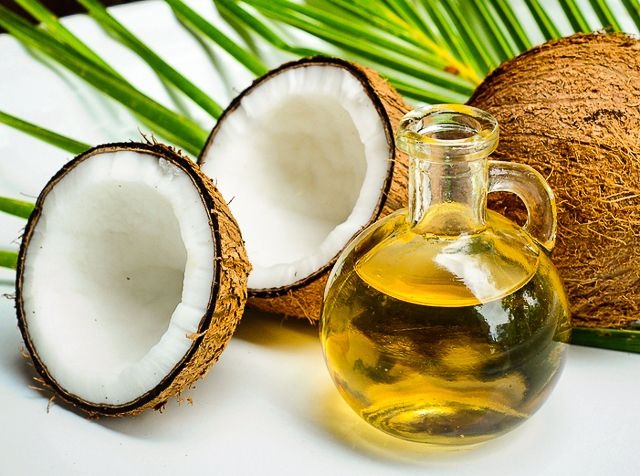Crude Coconut Oil vs Refined Coconut Oil: What Buyers Need to Know
Understand the essential differences between Crude Coconut Oil (CCO) and Refined Coconut Oil (RBD CNO). Learn which is best for your business needs and how LLG Export delivers both with consistent global quality.
Admin
9/2/20253 min read


Introduction: One Tree, Two Powerful Oils
Coconut oil has become one of the most versatile and in-demand natural oils in the world — used in food, cosmetics, and even the biofuel industry. But when buyers look for coconut oil, they often encounter two main types: Crude Coconut Oil (CCO) and Refined, Bleached, and Deodorized Coconut Oil (RBD CNO).
Both are derived from the same source — the coconut — yet their characteristics, uses, and market values differ significantly. For global buyers, understanding these differences is essential before making sourcing or trading decisions.
At PT Linggau Jaya Eksportir, we specialize in supplying high-quality Crude Coconut Oil directly from Indonesia’s rich coconut-producing regions, ensuring that our partners receive authentic, clean, and export-ready products.
1. What Is Crude Coconut Oil (CCO)?
Crude Coconut Oil (CCO) is the unrefined form of coconut oil, produced by pressing dried coconut meat known as copra. It’s a natural oil that still retains its distinct coconut aroma, golden-yellow color, and some impurities such as small residues or moisture that can later be refined.
Key Characteristics of CCO:
Color: Golden yellow
Aroma: Strong coconut scent
Free Fatty Acid (FFA): Typically below 5%
Moisture: Below 0.5%
Use: Industrial, cosmetics base, and further refining into RBD CNO
How It’s Produced:
Mature coconuts are split and dried to produce copra.
The copra is then mechanically pressed or expelled to extract oil.
The oil is filtered but not refined, maintaining its natural components.
This makes CCO the raw material for Refined Coconut Oil and other value-added coconut products.
2. What Is Refined Coconut Oil (RBD CNO)?
Refined, Bleached, and Deodorized Coconut Oil (RBD CNO) is obtained by processing CCO through a refining process that removes color, odor, and impurities — making it clear, odorless, and stable for food and industrial use.
Key Characteristics of RBD CNO:
Color: Water-clear or pale yellow
Aroma: Odorless and neutral
FFA: Below 0.1%
Moisture: Below 0.1%
Use: Edible oil, cosmetics, pharmaceutical, and biodiesel
Refining Process Includes:
Neutralization: Removes free fatty acids
Bleaching: Removes pigments and impurities
Deodorization: Uses steam to eliminate odor
This process produces a versatile oil with long shelf life, suitable for mass production in global industries.
3. Crude vs Refined: The Key Differences
FeatureCrude Coconut Oil (CCO)Refined Coconut Oil (RBD CNO)ProcessingCold-pressed from copra, unrefinedFurther refined from CCOAppearanceGolden yellowClear or colorlessAromaStrong coconut scentOdorlessUseIndustrial, cosmetics base, refining raw materialFood, cosmetics, pharmaceuticalsShelf LifeShorterLonger and more stablePrice RangeLowerHigher (due to refining cost)
Each type serves a different market segment.
Buyers looking for raw material for refining or industrial blending usually choose CCO, while food processors and cosmetic manufacturers prefer RBD CNO for its purity and stability.
4. Why Indonesia Is a Leading Producer
Indonesia has long been recognized as one of the largest coconut oil producers in the world, alongside the Philippines and India.
The country's vast coconut plantations — stretching across Sumatra, Sulawesi, and the Maluku Islands — produce millions of tons of coconuts each year.
Several advantages set Indonesian CCO apart:
High Oil Yield: Due to fertile tropical soil and fresh copra.
Modern Processing Facilities: Ensure consistent oil quality and controlled FFA levels.
Sustainability Practices: Many local producers are adopting organic and eco-friendly methods.
Export Infrastructure: Major ports like Jakarta, Surabaya & Belawan i provide smooth global shipping routes.
At PT Linggau Jaya Eksportir, we leverage these advantages to deliver reliable volume supply with stable export quality that meets buyer specifications.
5. Market Insights and Global Demand
The global market for coconut oil is expanding rapidly — driven by the rising popularity of natural ingredients, vegan lifestyles, and bio-based industrial materials.
The food industry values RBD CNO for its high smoke point and stability.
The cosmetics and skincare sector uses both CCO and RBD CNO as emollients and moisturizers.
The biofuel industry increasingly uses CCO as feedstock due to its renewable nature.
In regions like Europe, the Middle East, and North America, demand for both types continues to rise — with Indonesia recognized as a dependable supplier of both CCO and refined variants.
6. LLG Export’s Commitment to Quality and Trust
At PT Linggau Jaya Eksportir, we believe quality begins from the source.
We partner with trusted local processors and exporters who follow HACCP and Kosher, ensuring every batch meets international requirements.
We provide:
Custom Specification Options (FFA level, packaging type, labeling)
Food-Grade & Industrial-Grade Availability
Flexible Shipment Terms (FOB/CIF) from Indonesian ports
Transparent Documentation including CoA, MSDS, and Certificate of Origin
Our team ensures smooth communication, consistent quality checks, and timely delivery — because in global trade, trust and consistency are everything.
Conclusion: Choosing the Right Oil for Your Business
Whether you’re sourcing for industrial use, food processing, or cosmetics production — understanding the difference between Crude Coconut Oil (CCO) and Refined Coconut Oil (RBD CNO) helps you make the right decision.
With Indonesia’s strong production capacity and PT Linggau Jaya Eksportir export expertise, you can secure a steady supply of high-quality coconut oil products that meet your business needs — reliably, sustainably, and efficiently.



